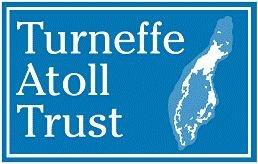Gillnet Ban
A Country-wide Gillnet Ban For Belize
For nearly two decades Belizean Fishermen and marine conservationists had called for a ban of gillnets, and there were several unsuccessful attempts to initiate a ban over those years. In 2017, Turneffe Atoll Trust, along with the Belize Federation of Fishers (BFF) and other conservation organizations organized and funded the Coalition for Sustainable Fisheries to again pursue a ban.
A Gillnet Ban for the coastal-marine area of Belize was initiated in December, 2019 along with a “Binding Agreement” ensuring that the ban would remain in place and not be overturned by subsequent administrations.
Additionally, a separate law prohibited fishermen from Guatemala and Honduras, who had been granted Permanent Residency and commercial fishing licenses, but do not live in Belize, from obtaining fishing licenses. This law was critical to the effort as this group of fishermen were the major gillnetters in Belize.
During the two years needed to institute the ban, there was considerable debate about the pros and cons of a gillnet ban. Commercial fishermen in Belize strongly supported the ban with the Belize Federation of Fishers, a key member of the Coalition for Sustainable Fisheries. Public support for the ban was also strong, though the Fisheries Department vehemently opposed a ban.
Turneffe Atoll Trust, along with Yellow Dog Community and Conservation Foundation, funded an analysis by Valentino Shal of the pros and cons of gillnet fishing in Belize. Net Loss or Net Gain? provides an in depth and objective analysis for both sides of this issue concluding that the positive effects of a ban far outweigh the negative effects.
Dr. Valentino Shal
Another relevant paper by Julio Benavides PhD, was also funded by Turneffe Atoll Trust.
The Negative Impacts of Gillnet Fishing on Marine Ecosystems: a Scientific Review
Julio Benavides PhD
Foreign Gillnetters Involvement
It was widely known that most gillnetting in Belize was being done by Guatemalan and Honduran fishermen traveling to Belizean water at night, or setting up camps on remote island for portions of the year. Although these fishermen did not live full-time in Belize and their families did not live in Belize, many were granted Permanent Residency and issued fishing licenses. It was widely known that one of their major targets was sharks for the lucrative shark finning trade. In addition, they harvested tons of finfish from Belize to be sold in Guatemala and Honduras.
Turneffe Atoll Trust organized a fact-finding mission and was able to obtain photos of barrels of permit and fields of drying fish verified as originating in Belize. Below are photos from a landing area in Guatemala.
80 Gallon Barrel of Permit
Salted Shark
Field of Drying Fish from Belize
Unfortunately, the legislation banning fishermen living in Guatemala and Honduras with Permanent Residency in Belize from obtaining fishing licenses was overturned in 2021.
Compensation for Displaced Gillnet Fishers
Compensation for displaced Gillnet Fishermen was essential to the ban and related fundraising was a major part of the effort. Based on the Fisheries Department’s list of registered Gillnet Fishermen in 2018, which was obtained through a Freedom of Information Request, 46 gillnet fishermen were registered in Belize and determined to live full-time in Belize.
The Coalition for Sustainable Fisheries raised BZ$ 1 million dollars for these fishermen through a GoFundMe page and various other means. The overwhelming majority of these funds were donated from the fly fishing industry in Belize and the United States. Eligible gillnet fishers were required to develop a plan for replacing the gillnet income and these funds were to fund project ranging from an ice cream stand to lobster fishing gear.
Oceana raised an additional BZ$ 1 million dollars which was distributed to the same group over a period of several months as a “gillnet buy-back program”.
Binding Agreement
A critical aspect of the Gillnet Ban is an agreement executed between the Government of Belize, the Coalition for Sustainable Fisheries and Oceana. The purpose of the Binding Agreement is to permanently institute the ban. It establishes that the ban cannot be “reversed, repealed and/or amended, in any way or at all, save and except after the following”:
A peer-reviewed economic analysis has concluded that reversal of the ban is to the economic advantage for Belize.
Peer-reviewed scientific reports from at least two national scientific entities categorically classify gillnets as non-destructive fishing gear unharmful to protected and sensitive habitats.
National consultations in each municipality verify strong public support for removal of the ban.
Health of Belize’s Finfish Fishery
Those familiar with the finfish fishery in Belize are seriously concerned about its viability and sustainability. Turneffe Atoll Trust did a robust country-wide survey to ascertain the availability of finfish for restaurants, supermarkets and tourism facilities. The findings were striking with 82% of respondents indicating that they can no longer find an adequate supply of fresh fish. Although demand for fresh fish has increased, availability of local fresh fish has declined substantially.
Most businesses surveyed are now forced to purchased imported or farmed fish to supply their customers. Belize has transitioned from an exporter of finfish to a being an importer of finfish.
Availability of Fresh Fish in Belize - July 2019
Turneffe Atoll Trust
gillnet ban Status 2022
In 2022, the Gillnet Ban remains solidly in place; however, its effectiveness has been diminished. The corollary law to the ban prohibiting foreign fishermen from fishing in Belizean waters was reversed by the new administration in 2021. This allowed established gillnet fishermen from Guatemala to re-establish their footing in Belize. Enforcement of the ban is also somewhat questionable due partially to the Fisheries Departments lack of support for the ban.




